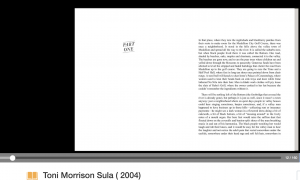SAN FRANCISCO—On Monday, June 1, the San Francisco-based digital library Internet Archive (IA) was sued by four major U.S. publishing companies for copyright infringement.
The plaintiffs are Hachette Book Group, HarperCollins, John Wiley & Sons, and Penguin Random House. They allege that IA distributed over 1.3 million in-copyright books without getting any of the rights necessary to legally release them to the public, violating the Copyright Act.
Among the publishing companies’ legal demands, they want a prohibition on Internet Archive illegally disseminating texts, as well as all the destruction of all unlawful copies that have already been distributed. The plaintiffs are also requesting payment of an unknown amount for damages.
The lawsuit was filed through the U.S. District Court for the Southern District of New York.
IA began its services in 1996. According to its website, it has since gathered 20 million books and texts, along with other media like audio recordings, videos, and more. The company reportedly scans 1,000 books per day in 28 locations worldwide. Internet users can find and download full public copies of certain books and texts through IA.

As it states on its website, IA’s rationale for its distribution model is that: “Not everyone has access to a public or academic library with a good collection, so to provide universal access we need to provide digital versions of books.”
The plaintiffs assert in their criminal complaint, “Despite the ‘Open Library’ moniker, IA’s actions grossly exceed legitimate library services, do violence to the Copyright Act, and constitute willful digital piracy on an industrial scale.”
Maria Pallante, President of the Association of American Publishers, of which all of the plaintiffs are members, said in a public statement on Monday:
“The lawsuit reflects widespread anger among publishers, authors, and the entire creative community regarding IA’s actions and its response to objections.”
An open letter to IA’s Board of Directors published by the Authors Guild echoed Pallante’s sentiment which reads:
“You cloak your illegal scanning and distribution of books behind the pretense of magnanimously giving people access to them. But giving away what is not yours is simply stealing, and there is nothing magnanimous about that.”
Neither the plaintiffs nor the defendant immediately responded to a request for comment.






